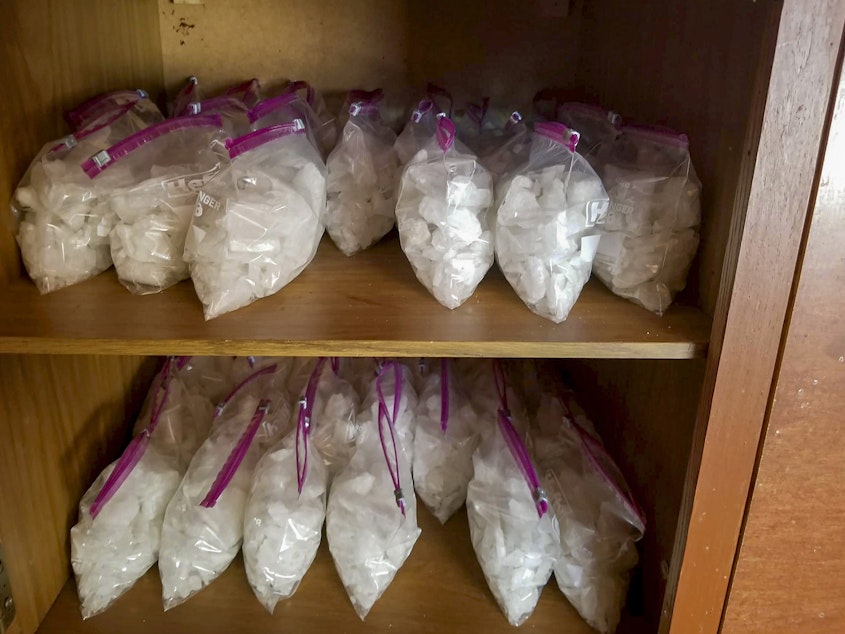'It's almost like a light switch.' Everett doctor touts potential of new drug to break meth addiction

A new solution for treating methamphetamine addiction may be in the works. At Providence Regional Medical Center in Everett, emergency room doctors are taking part in a national trial using monoclonal antibodies to treat the addiction.
Monoclonal antibodies became more well-known during the pandemic as a treatment for Covid, but they've been around for decades as a treatment for cancer, or even snake bites.
To learn more, KUOW’s Kim Malcolm spoke to Providence's Dr. Thomas Robey about how these antibodies bind to meth in the blood, allowing the body to process the drug, and wash it out.
This interview has been edited for clarity.
Dr. Thomas Robey: This is still very early in the experimental phase, but what we found so far in the initial phases of this treatment is that after receiving this drug, people's symptoms from the methamphetamine intoxication improve very quickly. So, if they were paranoid, they're less so. If they were agitated, they're less so. If they were anxious, they're less so. It's a game changer, really, if it turns out that this will end up working for our population.
Kim Malcolm: How do you see it changing the game?
As the ER doc, seeing folks who are coming in high on these drugs, or incapacitated by them, it's really difficult for us because we really don't have any treatment that can help them long term. Sure, we can treat their symptoms and help them in the short term, get them back out safely from the ER. But we really don't have any treatments that can help them recover from their addiction. And that's where this binding antibody comes into play. It acts for a long duration, and can help people get on their feet, if they're willing to quit using.
How would it change how I want to take meth? Or what kind of impact it would have on me?
Sponsored
This drug is an antibody that stays in your bloodstream for more than a month. The half-life is 19 days, which means that you have several weeks where this antibody will be circulating, binding to any methamphetamine that it sees in the blood. Effectively, what this means is that if you slip up in your commitment to stop using and use a little bit of meth, you're not going to get as high because the antibody is right there acting as an antidote to what you've used.
The advantage for this long term is that maybe you can get your housing voucher, or maybe you can get your ID, or maybe you can figure out a little bit more about other things you need in your life to try to normalize your interaction with society that doesn't involve methamphetamine.
How would you say the trial is going so far? What have you seen?
What is really amazing with this particular treatment is that folks come in affected by meth, they get the treatment, and it's almost like a light switch. Within 30 minutes to an hour they're no longer affected by the drug. They're making plans for getting clean or trying to get back into housing. That's the real promise, I think, that this agent has is that there are a lot of people out there who are using who don't want to use, but it's so hard to break the cycle. This drug may be that way to break the cycle.
What does that mean for you and your colleagues that you see this switch getting flipped in people?
Sponsored
A lot of us who practice emergency medicine in urban settings take pride in being part of the safety net. When folks need help no matter what it is they need, we're there to help. We can do that with a lot of different medical conditions. What's really heartbreaking is that methamphetamine is not something that we have a good treatment for.
I think that if this were an approved treatment, it would help us help our community and get people on their paths to wellness, on their paths to better health, and being the type of people they want to be, not just dependent on drugs. We're really hopeful that this is going to provide a new solution for folks who are stuck in an addiction to meth.
Listen to the interview by clicking the play button above.





